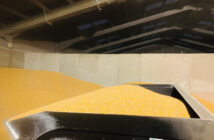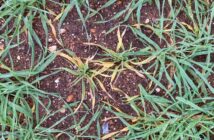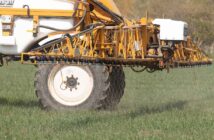Under the theme of ‘Nurturing Growth, Harvesting Excellence’, De Sangosse says its Cereals stand will serve as a hands-on learning hub covering issues from glyphosate stewardship to soil health.
Part of this year’s BASIS Knowledge Trail, the Glyphosate Stewardship Zone will be a focal point for educating farmers on best practices for resistance management, water quality, and application techniques the company states.
With glyphosate-resistant ryegrass now confirmed on UK farms, the aim is to emphasise the importance of glyphosate stewardship at the event. As the risk of resistance continues to grow, effective stewardship is essential to ensure the long-term viability of this vital herbicide suggests commercial director Rhodri Morris.
“Glyphosate resistance is a real and growing risk, so every application counts. Water quality plays a huge role in ensuring glyphosate works effectively. Too often, hard water ties up the herbicide, reducing its efficacy.”
By highlighting the role of water quality and resistance awareness, De Sangosse hopes to equip farmers with the knowledge needed to make glyphosate applications more effective and sustainable.
Visitors to the stand will gain access to practical resources, including:
- Free digital water testing meters to help farmers assess their own spray water quality
- A new Glyphosate Stewardship Guide packed with best practice advice and resistance management strategies
In addition to glyphosate stewardship, the company will highlight its innovative soil nutrient activators— something it considers a game-changer for farmers aiming to enhance soil fertility without increasing the use of chemical fertilisers. These activators are designed to unlock bound phosphate and essential micronutrients that are already present in the soil, making them more accessible for crops during key growth stages.
“With fertiliser prices still volatile, being able to mobilise what’s already in the soil is a huge advantage for growers,” adds Rhodri. “This not only supports sustainability but also strengthens financial resilience by reducing reliance on external inputs.”
On-site experts will guide visitors through how these soil activators can be integrated into both autumn and spring farming programs to maximise nutrient uptake and boost crop productivity.
Visitors to the stand will have the opportunity to explore how foliar nutrition can improve plant health, reduce the impact of environmental stressors, and enhance overall crop productivity.
It’s not just about feeding crops; it’s about feeding them efficiently,” notes Rhodri. “Our solutions are tailored to help plants navigate stress, safeguard herbicide tank-mixes, and ultimately maximise yield.”




